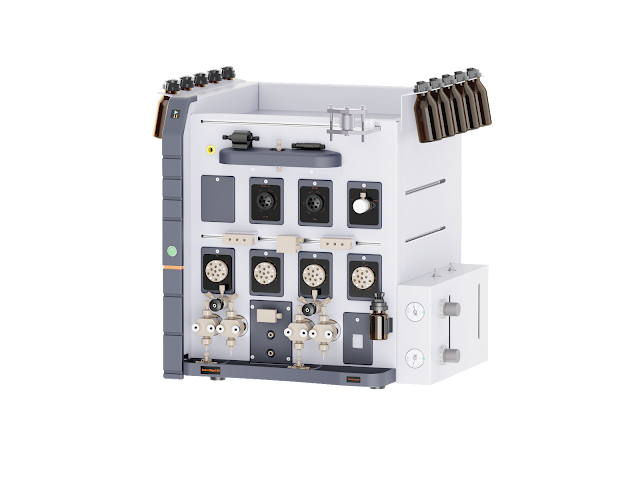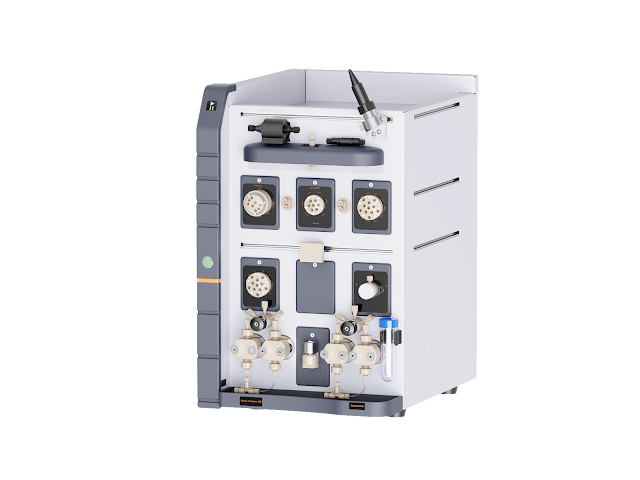Revolutionizing Scientific Discovery: The Impact and Evolution of Lab Equipment and AKTA Systems
In scientific research and experimentation, laboratory equipment plays a pivotal role. These tools, ranging from basic glassware to sophisticated analytical instruments, are essential for conducting various experiments and research. Using high-quality lab equipment ensures accuracy, efficiency, and safety in scientific processes. One such advanced piece of laboratory equipment is the AKTA, a chromatography system predominantly used in protein purification and bio-molecular research. The versatility and precision of the AKTA system have made it a staple in many scientific laboratories, significantly contributing to advancements in the field of life sciences.

The Role of AKTA in Modern Laboratories:
The AKTA system, a sophisticated laboratory equipment, has revolutionized how scientists approach protein purification and analysis. This system offers unparalleled accuracy and control, which are critical in separating different biomolecules. By allowing precise manipulation of variables such as flow rate, temperature, and pressure, the AKTA system ensures that scientists can isolate proteins with high purity and yield. This level of precision is crucial for research and the development of pharmaceuticals, where the purity of protein products is of utmost importance.
Advancements in Laboratory Equipment Technology:
Over the years, laboratory equipment has undergone significant advancements, both in terms of functionality and user-friendliness. Modern instruments like the AKTA system embody these improvements, providing researchers with tools that are more efficient and easier to use. Integrating digital technology and automation in laboratory equipment has been a game-changer, enabling scientists to perform complex experiments with greater accuracy and less manual intervention. The AKTA system, for example, comes equipped with software that allows for the automation of protein purification processes, thereby reducing the potential for human error and increasing reproducibility.
Challenges and Solutions in Laboratory Equipment Maintenance:
Maintaining laboratory equipment, including systems like AKTA, is crucial for ensuring consistent performance and longevity of the instruments. Regular maintenance and calibration are necessary to avoid inaccuracies in experimental results. Challenges in maintenance often arise from the complexity of the equipment and the need for specialized knowledge. Many laboratories employ dedicated technicians to address these challenges and follow strict maintenance protocols. Additionally, laboratory equipment manufacturers often provide comprehensive service packages and training to assist laboratories in maintaining their equipment effectively.

Future Directions in Laboratory Equipment and AKTA Systems:
The future of laboratory equipment, particularly systems like AKTA, holds immense potential. Emerging technologies such as AI and IoT are poised to make these tools more intelligent and interconnected. This integration will likely lead to enhanced analytical capabilities, greater automation, and more personalized laboratory experiences. As these advancements unfold, AKTA systems and other laboratory equipment will remain at the forefront of innovative scientific research and discovery.
Conclusion:
Laboratory equipment is a fundamental component of scientific research, with systems like AKTA playing a critical role in advancing fields such as biochemistry and molecular biology. The evolution of these tools has empowered scientists to conduct more precise and efficient research. As technology advances, lab equipment is expected to become even more sophisticated, further pushing the boundaries of scientific discovery. For more information on the latest advancements in lab equipment and AKTA systems, visit inscinstech.com.cn, a comprehensive resource for modern scientific instruments and technologies.
.jpg)

Comments
Post a Comment